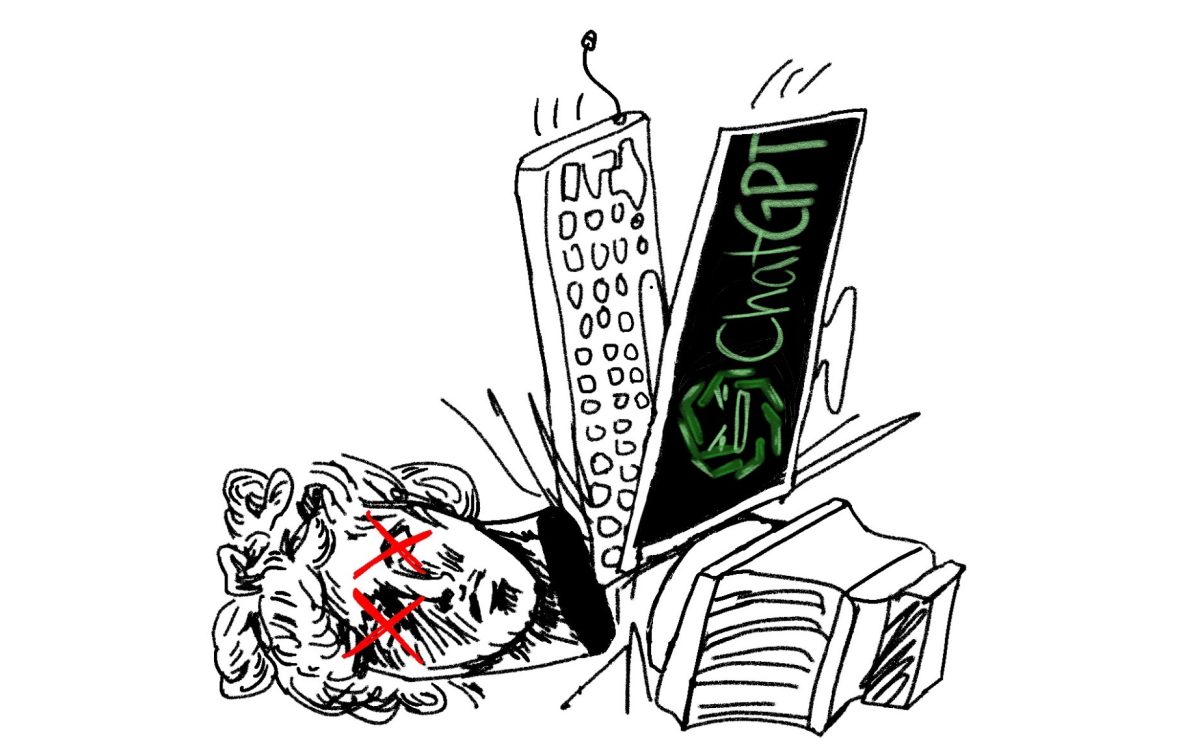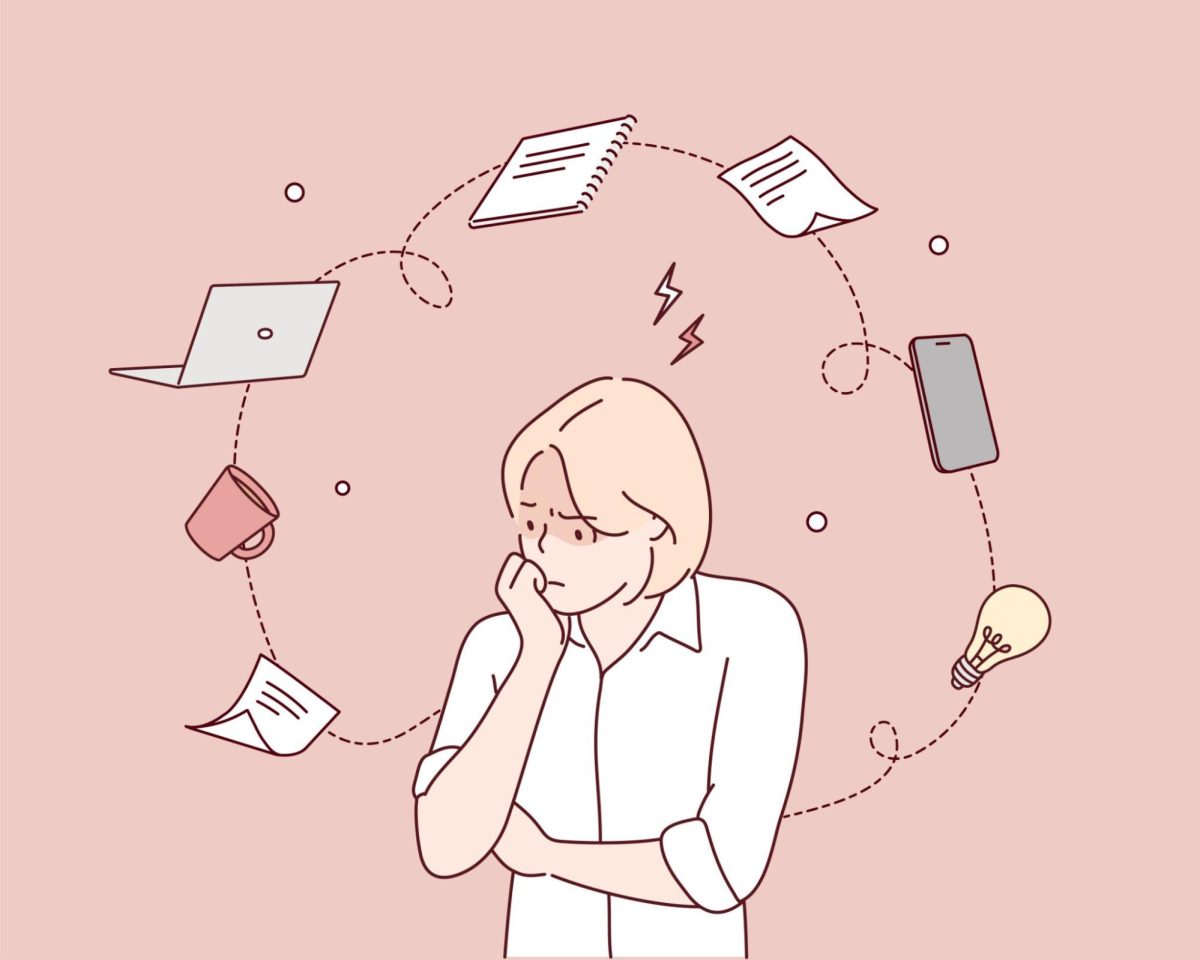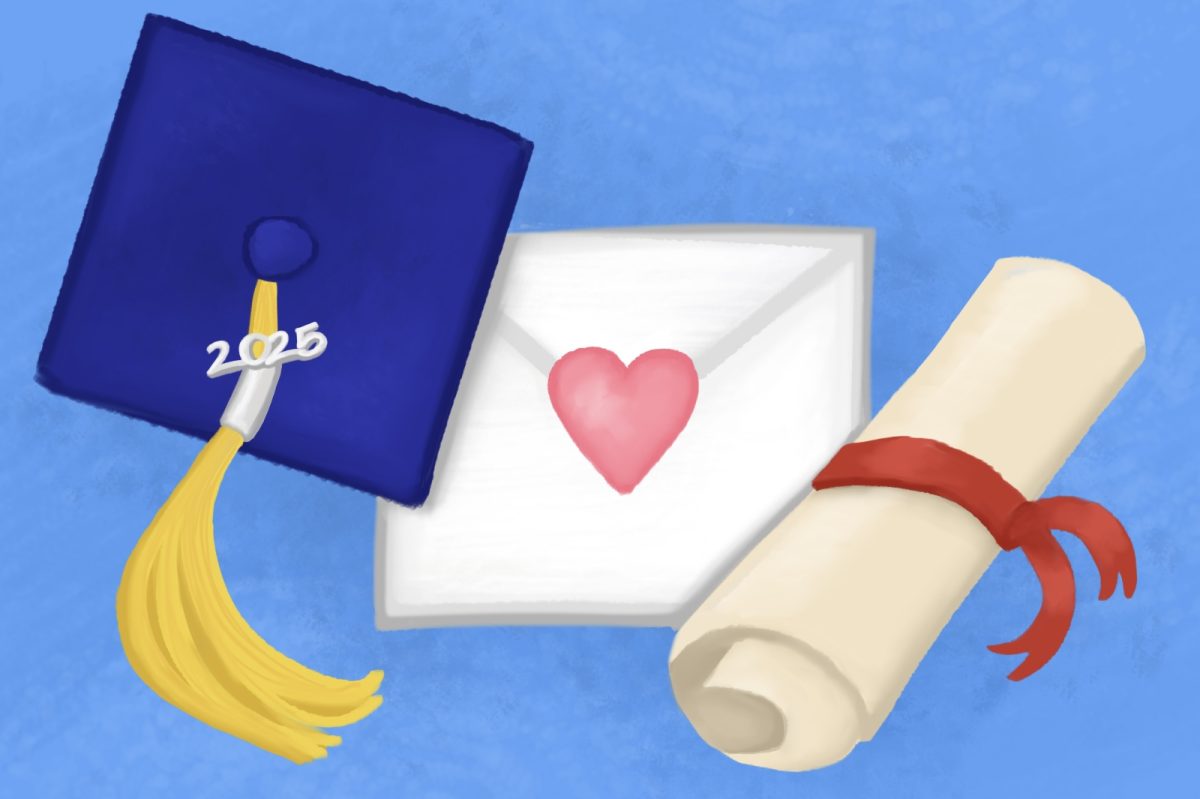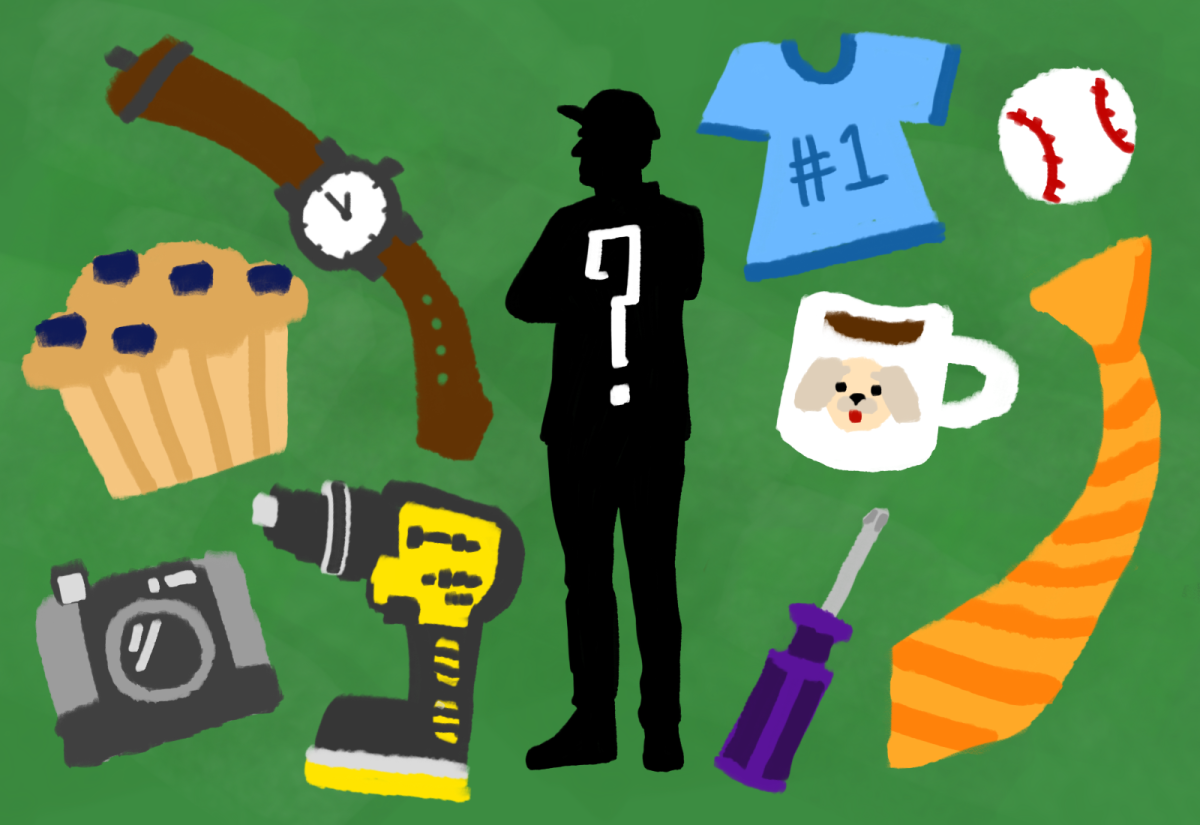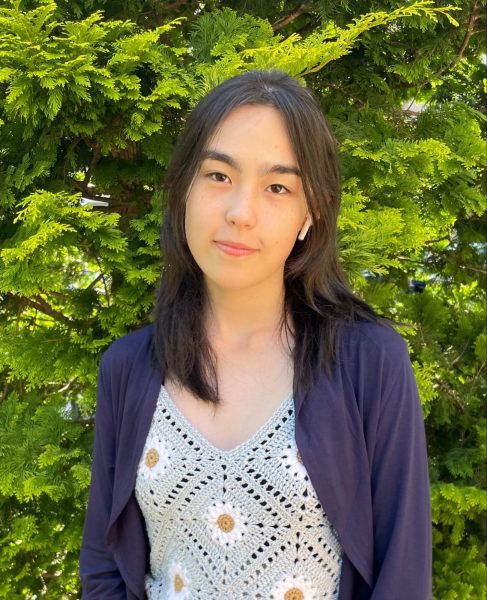You attend writing programs, submit your poetry to publishers, and craft strong essays. You build a portfolio slowly, to encompass your passion and later apply as an English major when entering college. You hope to get into a strong college to further your craft, to enter a stable job that involves what you love: writing. However, all the while, your parents are telling you to change your major—your dream—and find a more viable career. They worry for the future of your dreams and the permanence of the humanities. Are they correct? Is your future destined to be replaced by AI?
The world is changing. Recent developments in artificial intelligence have thrown many industries and previously stable jobs into turmoil. Careers in humanities are particularly in danger of this advancing threat: AI is diminishing the jobs of artists, writers, journalists, and academics, among other careers—which is harmful to students’ future careers and roles in society. These jobs must be better protected to emphasize the vital role each career plays in society and clarify the importance of these human-based, liberal arts fields.
Currently, many humanities careers are in jeopardy. Screenwriters, for example, were placed under pressure by the possible usage of ChatGPT to write scripts in place of actual writers—evidenced by the 2023 Writers Guild of America (WGA) strike. Journalists are stealthily being replaced by AI, which can generate news articles at a much faster, less costly pace. Artists are likewise threatened by programs like DeepAI, Sora, and Midjourney, which feed off of the content writers, artists, and photographers upload online without properly crediting them. Thus, many are witnessing their hard work get stolen by AI with no credit or profit, overall decreasing the value of their craft.
It’s natural that students considering creative careers would be concerned. Instead of giving up, however, become informed of how you can help protect the human side of humanities careers. Taking action has worked before: the 2023 WGA strike redefined writers’ rights to ensure fair pay and labor alongside AI. They demonstrated the critical-thinking skills that each job still needs and why humanities careers are still relevant. They set the tone for how we should deal with AI: as a creative aid, not a replacement for human thinking.
In the meantime, many humanities-based jobs continue to thrive. Niche communities like literature/movie-based fandoms still purchase many commissions from fine artists. Humanities research fields continue to be funded as they accelerate the development of new technology and improved technique. Psychology studies improve therapy treatment, and analysis of history furthers policy and diplomacy.
Humanities-based jobs that already emphasize human input and empathy are also still imperative. Teaching, which is an example of a career that requires human connection, will remain constant, according to the U.S. Bureau of Labor Statistics. Likewise, therapy and counseling-associated jobs that require the warmth of another person will increase significantly: psychologist job openings are projected to grow by 6% in the next decade—more rapidly than any other field, according to the Bureau. These statistics prove the permanence of humanities jobs when critical thinking and human touch are underlined.
As long as there are humans, the humanities will always be relevant. In this AI-overtaking world, it is necessary to maintain and foster creativity and critical thinking—especially beyond high school when you embark on a new career. We require the growth in art, deeper understanding of history, and expansion of literature and media for a prosperous, well-balanced society. Therefore, we need liberal arts people and careers. We cannot let AI overtake the human touch that the humanities provides. It is our future, our careers that are the most unstable. As such, we must protect them.


